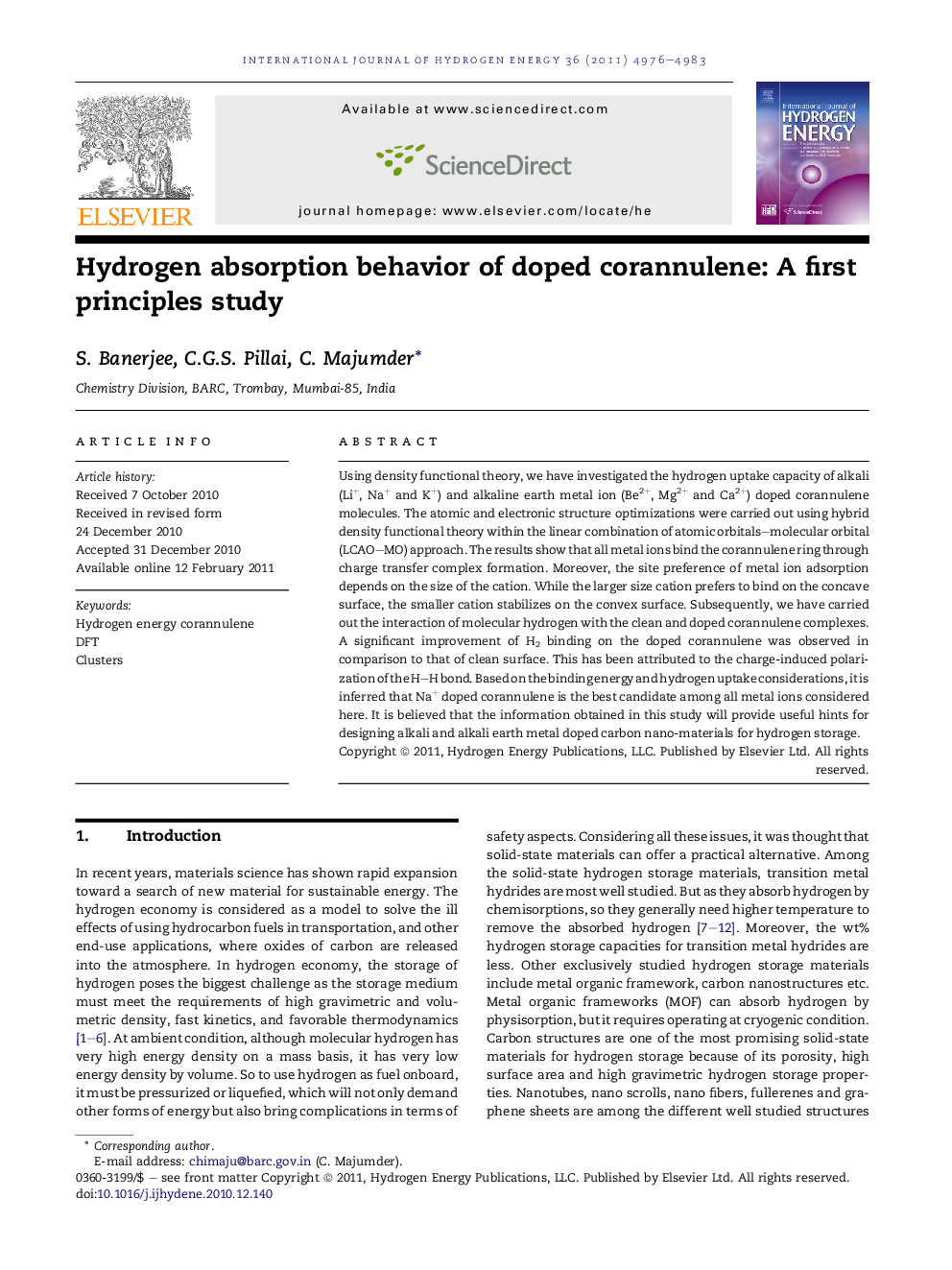| Article ID | Journal | Published Year | Pages | File Type |
|---|---|---|---|---|
| 1279804 | International Journal of Hydrogen Energy | 2011 | 8 Pages |
Using density functional theory, we have investigated the hydrogen uptake capacity of alkali (Li+, Na+ and K+) and alkaline earth metal ion (Be2+, Mg2+ and Ca2+) doped corannulene molecules. The atomic and electronic structure optimizations were carried out using hybrid density functional theory within the linear combination of atomic orbitals–molecular orbital (LCAO–MO) approach. The results show that all metal ions bind the corannulene ring through charge transfer complex formation. Moreover, the site preference of metal ion adsorption depends on the size of the cation. While the larger size cation prefers to bind on the concave surface, the smaller cation stabilizes on the convex surface. Subsequently, we have carried out the interaction of molecular hydrogen with the clean and doped corannulene complexes. A significant improvement of H2 binding on the doped corannulene was observed in comparison to that of clean surface. This has been attributed to the charge-induced polarization of the H–H bond. Based on the binding energy and hydrogen uptake considerations, it is inferred that Na+ doped corannulene is the best candidate among all metal ions considered here. It is believed that the information obtained in this study will provide useful hints for designing alkali and alkali earth metal doped carbon nano-materials for hydrogen storage.
